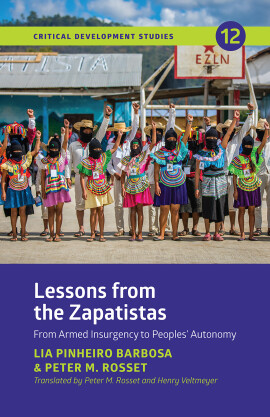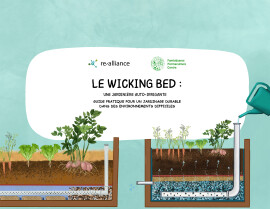
Standards for Supporting Crop-related Livelihoods in Emergencies
Millions of people around the world who are vulnerable to crises rely heavily on crop production to support their livelihoods. Currently, 40% of the global poor live in economies affected by fragility, conflict, and violence. That number is expected to rise to 67% in the next decade (World Bank 2021).
SEADS is a set of international principles and minimum standards for crop-related crisis responses. The Handbook enables those responding to humanitarian crises to design, implement, and evaluate crop-related interventions to strengthen the livelihoods of farming communities, support preparedness and post-emergency recovery, and increase the resilience of households, communities, and systems.
SEADS helps users to: determine if a crop-related response is appropriate, necessary, and feasible; prioritize which crop-related response area may achieve livelihood objectives given the context; track alignment of projects with standards; measure impact from crop-related crisis response.
Series: Humanitarian Standards
Published: 2022
Pages: 238
eBook: 9781788532419
Paperback: 9781788532396
Multibuy 20: 9781788532402
SEADS is a set of international principles and minimum standards for crop-related crisis responses. The Handbook enables those responding to humanitarian crises to design, implement, and evaluate crop-related interventions to strengthen the livelihoods of farming communities, support preparedness and post-emergency recovery, and increase the resilience of households, communities, and systems.
SEADS helps users to: determine if a crop-related response is appropriate, necessary, and feasible; prioritize which crop-related response area may achieve livelihood objectives given the context; track alignment of projects with standards; measure impact from crop-related crisis response.
| List of figures and tables | |||
|---|---|---|---|
| SEADS: Minimum Standards for Supporting Crop-related Livelihoods in Emergencies | |||
| Chapter 1: How to Use this Handbook | |||
| Chapter 2: The Scope and Approach of SEADS | |||
| Chapter 3: SEADS Principles | |||
| Chapter 4: Initial Assessment for Crop-related Crisis Response | |||
| Chapter 5: Seed and Seed Systems | |||
| Chapter 6: Tools, Equipment, and Other Non-seed Inputs | |||
| Chapter 7: Crop-related Infrastructure | |||
| Chapter 8: Impact-oriented Monitoring and Evaluation | |||
| Annex A: Glossary | |||
| Annex B: References | |||
| Annex C: Elements of Team Competency | |||
| Annex D: Acknowledgments and Contributors | |||
| Annex E: Index |
'Evidence-based, livelihoods-based, and rights-based—exactly what is needed to guide emergency response to smallholder crop producers hit by crisis.'
Pepijn Schreinemachers, Senior Scientist, World Vegetable Center, Thailand
The SEADS Project is a two-year, inclusive, and consultative process to develop evidence-based standards for supporting agricultural livelihoods in emergencies.
Disaster Plant Pathology: Smart Solutions for Threats to Global Plant Health from Natural and Human-Driven Disasters
Etherton, Berea A.
Choudhury, Robin A.
Alcalá Briseño, Ricardo I.
Mouafo-Tchinda, Romaric A.
Plex Sulá, Aaron I.
Choudhury, Manoj
Adhikari, Ashish
Lei, Si Lin
Kraisitudomsook, Nattapol
Buritica, Jacobo Robledo
Cerbaro, Vinicius A.
Ogero, Kwame
Cox, Cindy M.
Walsh, Stephen P.
Andrade-Piedra, Jorge L.
Omondi, Bonaventure Aman
Navarrete, Israel
McEwan, Margaret A.
Garrett, Karen A.
Phytopathology®, Vol. 114 (2024), Iss. 5 P.855
https://doi.org/10.1094/PHYTO-03-24-0079-FI [Citations: 15]





